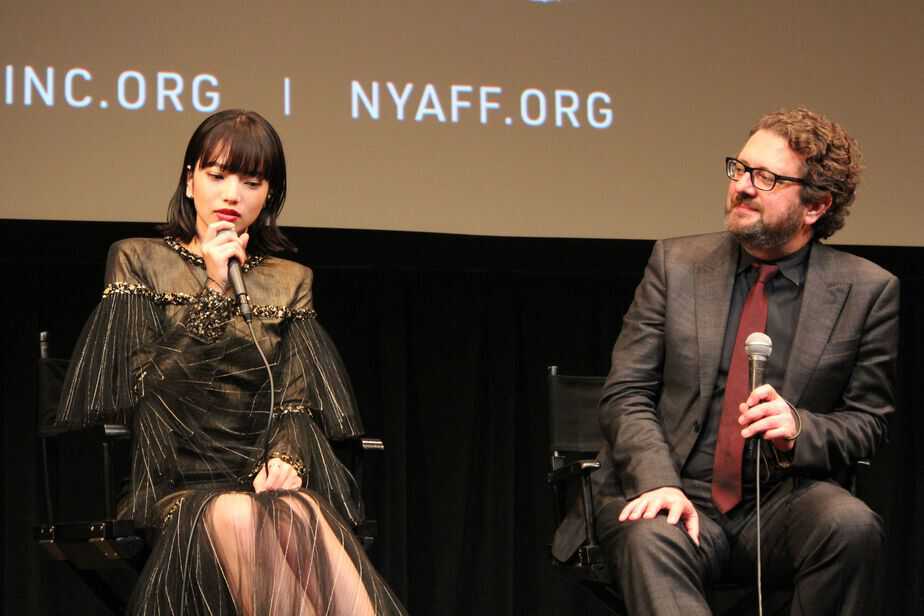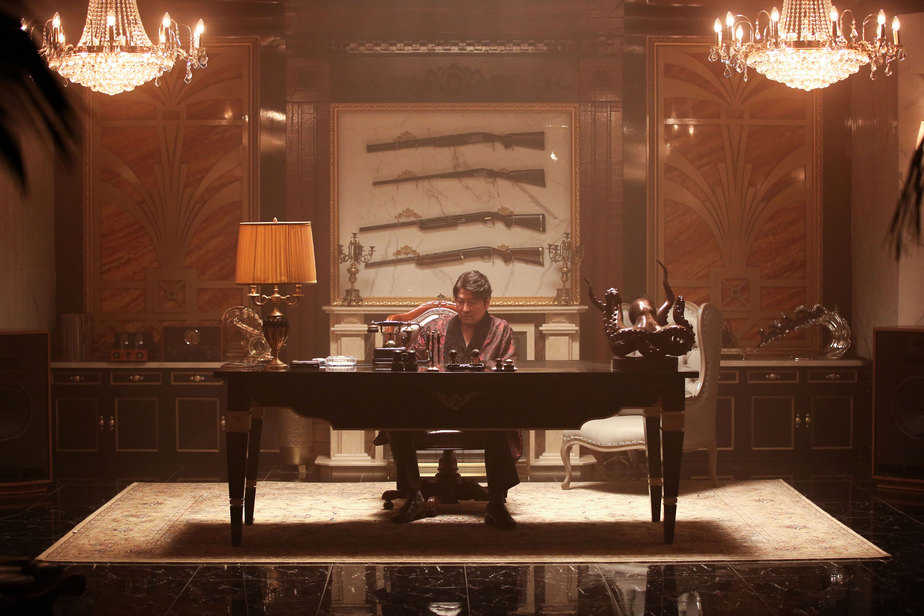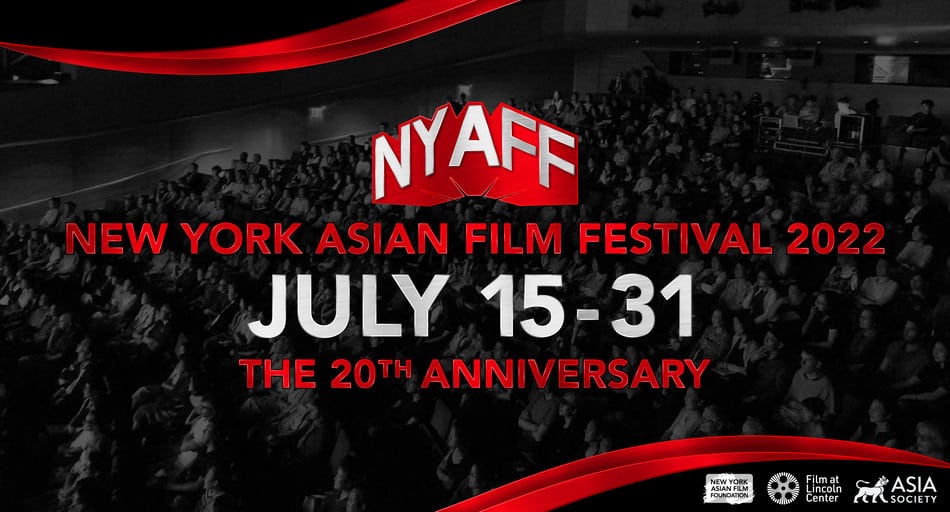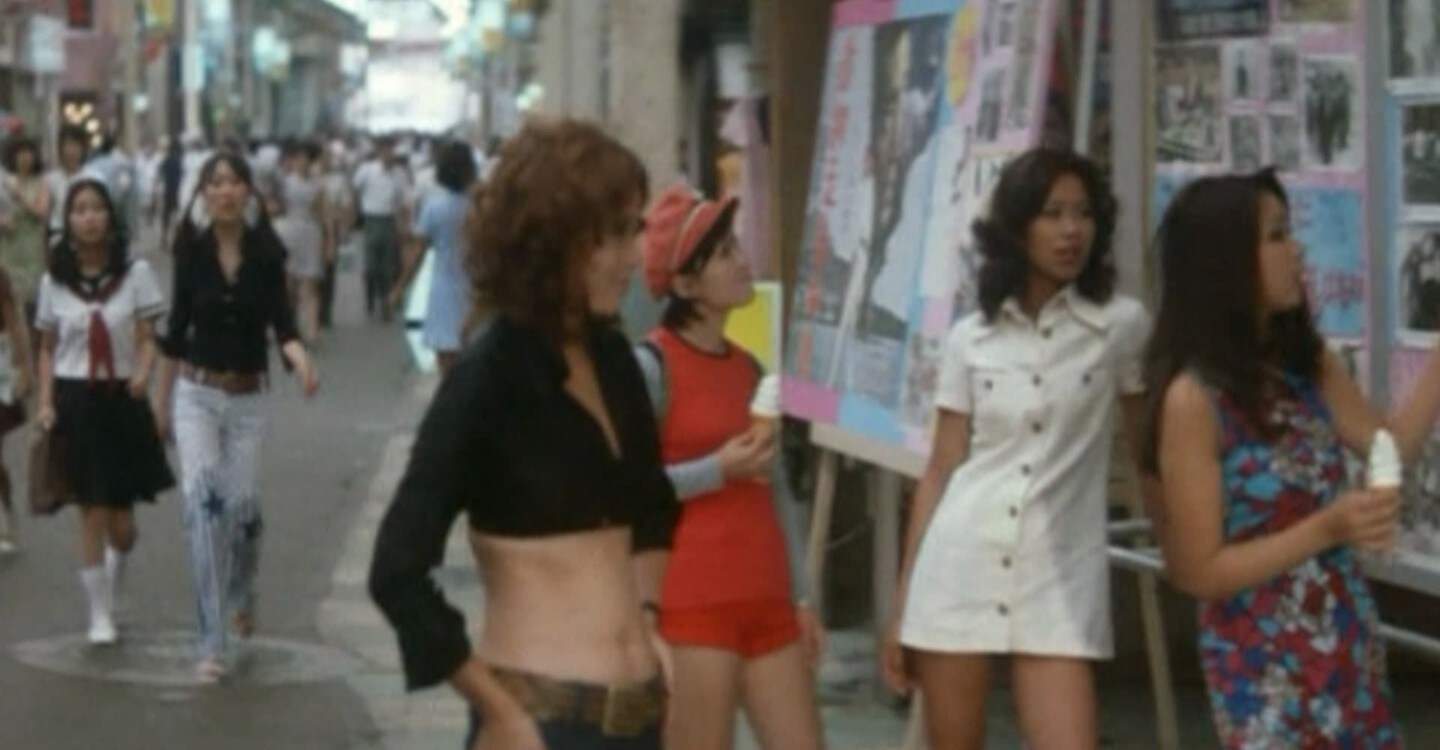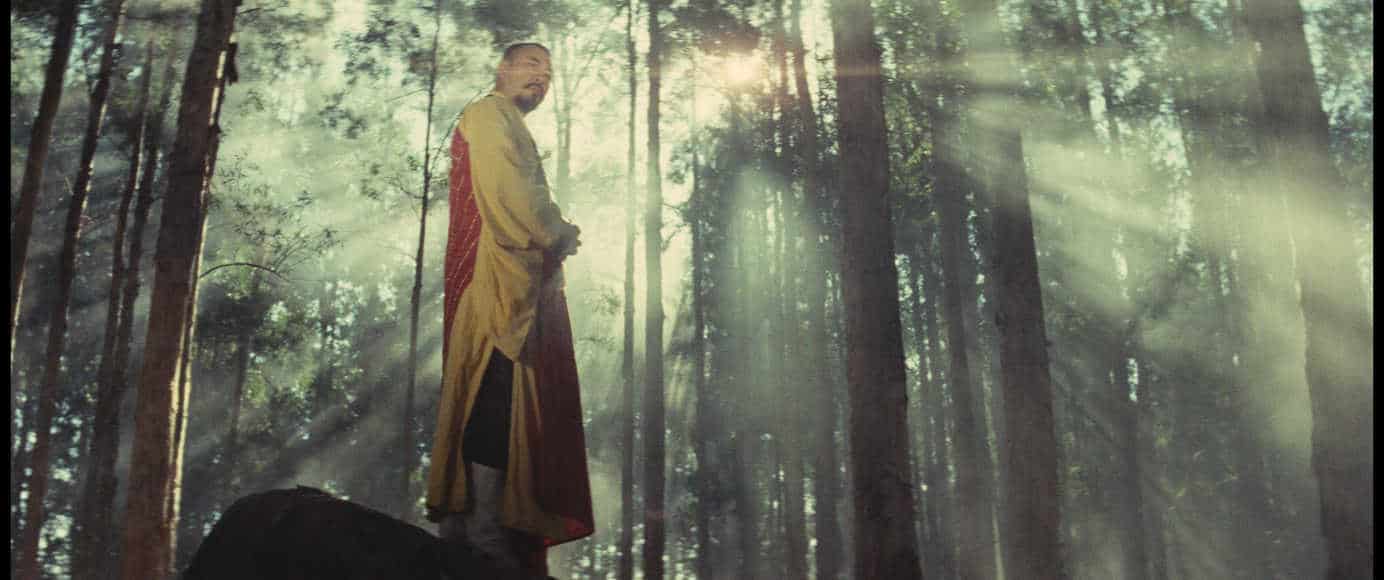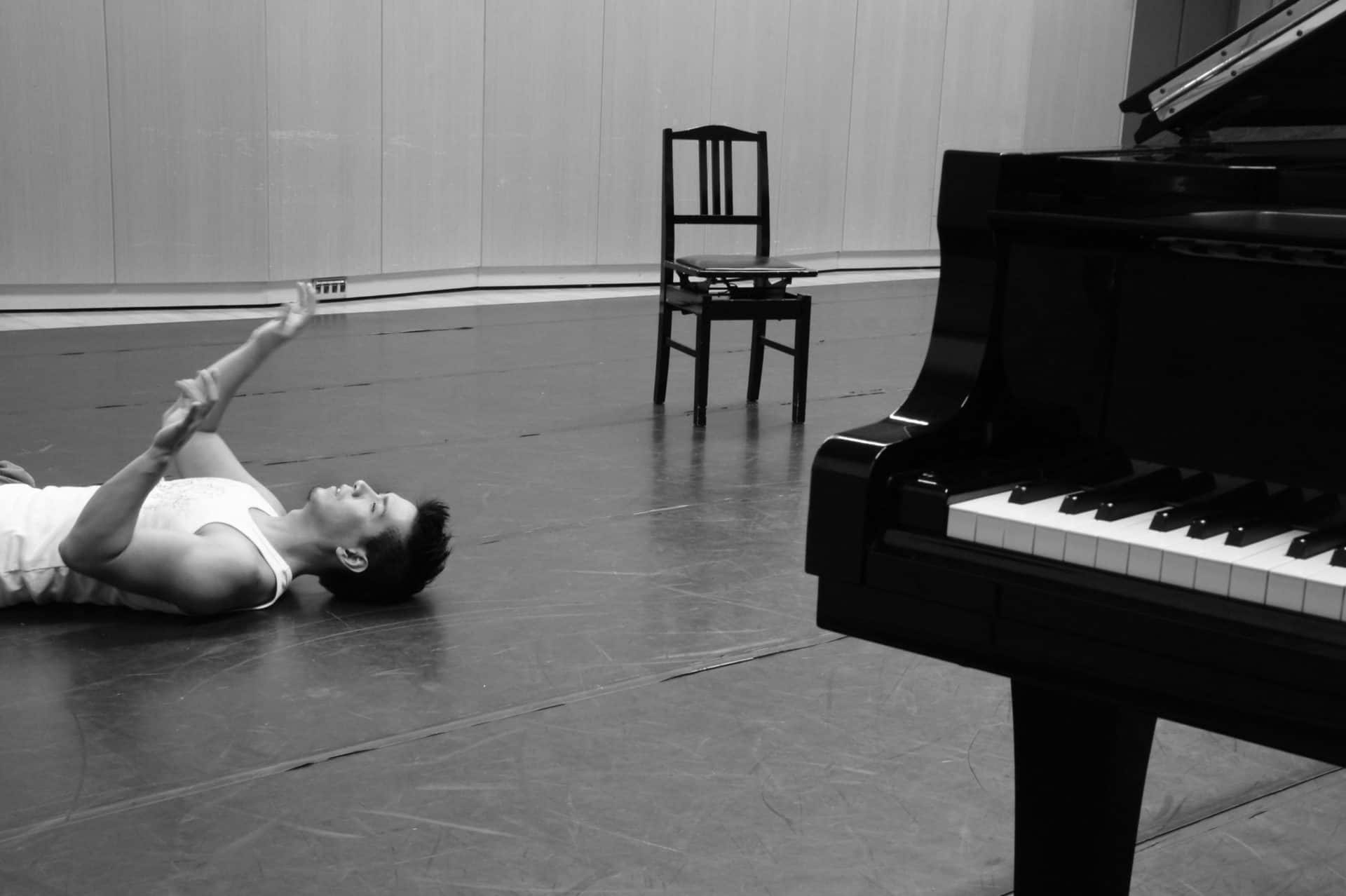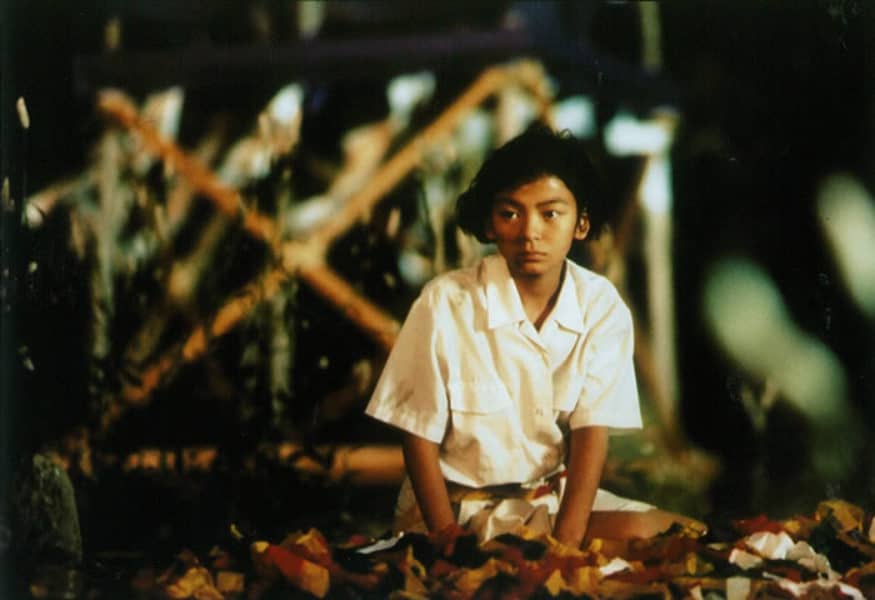For many film fans the name Bernard Rose is usually connected to perhaps his most famous film “Candyman”. However, the English director has also made a name for himself directing many period films, for example, about the life of musician Niccolo Paganini (“The Devil's Violinist”), Ludvig van Beethoven (“Immortal Beloved”) as well as an adaptation of Leo Tolstoy's “Anna Karenina”. His new film “Samurai Marathon” takes place during the time and age of the samurai.
Tokyo native Nana Komatsu was born in 1996 and began her career starring in a short film, called Tadaima, before immediately graduating to movies like Close Range Love and The World Of Kanako. Prior to these, however, she was a popular account holder on Instagram and a model. By 2015 she had already won the 38th Japan Academy Prize: Newcomers Of The Year award. She has since added several awards to her roster. Her credits also include films like “Destruction Babies” and “Silence”.
On the occasion of “Samurai Marathon” screening at New York Asian Film Festival, we sat down with the director and the leading actress to talk about the themes of the film, the locations and their collaboration.
“Samurai Marathon” is screening at New York Asian Film Festival
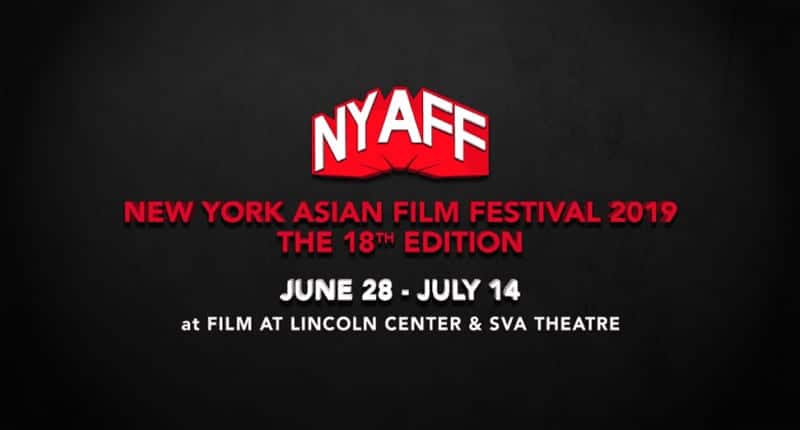
You are very well-known for your films in the US but this is the first time for you directing in Japan. What was the experience like directing there and what do you think are the difference between shooting in the US and in Japan?
I have shot all over the world. I have done films in the UK, in Russia, Romania, the USA, Spain and Germany. I have shot in lots of different countries, but the shooting process itself is always the same. Film is really an international language and the process of finding as well as working with the crew is amazingly similar.
Obviously, with this movie there were a lot of cultural differences. With regards to working with the crew it was very professional and many of them have worked on many films before.
What drew you in particular to this story?
I think what I liked about it was this idea of this perfect world, this time in which Japan had experienced stability for over 250 years and Commodore Perry arrives and all bets are off. It's in a sense change, coming suddenly and unwillingly from outside. Of course, the shogun was terrified when he saw the Americans arrive, with good reason, and he knew their world had to change, which it did.

I think the emotional reaction and how that manifested itself in terms of arguments and conflicts it sets off struck me as a very interesting story because that is really the colonial story. In a sense, what is interesting about the Japanese example is they successfully resisted colonialism in the 19th century which no one else did at that time. They succeeded by very quickly adopting everything that they needed to from Western culture but hanging on to their own culture at the same time which is very unique, I think. The process which led to that is a very good story.
Can you tell us something about the locations of the films and also your collaboration with cinematographer Takuro Ishizaka?
Well, the film was shot in Yamagata Prefecture on a set that was already there which has a little samurai town. There is also a shrine and a surrounding forest where you find these beautiful ancient trees. The landscape was so beautiful and I think I have never seen anything like it before. Certainly in many Western films which have ostensibly shot in Japan instead, they have been shot in New Zealand or Taiwan, which does not look like Japan at all. These places are never quite lush enough, never quite green enough. There is something different about them.To me it was a spectacular landscape and a spectacular environment.
What about all that running we see in a film? How did you deal with that while shooting?
Takuro and I had to come up with ways of shooting these scenes, but we did not want to use steady-cams. Instead, we used a remotely controlled camera which looked a bit like a mantis. We had people running around with that thing and sometimes we had it on a crane or a car when we found roads going through the forest.

What was you cooperation like with Nana Komatsu?
Nana is such an amazing actress and she draws you in during her performance. She is very thoughtful and there is a lot going on behind her eyes. Additionally, she is very witty and funny.
You might look at some of her works and think she is a bit flighty, but that is not the case. In fact she is very strong and that is what I wanted for that character.
Mrs. Komatsu, what drew you to this particular character and how did Mr. Rose guide you through it?
This story is a period piece and Princess Yuki is a character who lives in a very closed, confined environment. But she has an interest in the Western world and she is really committed to what she likes. And it is not only that, she turns this into action.
I was very drawn to that: this woman with this very strong feeling and passion. It was something that I haven't done in the past, and so it felt really new to me. On top of that, working with a foreign director I thought would help me grow and would challenge me. So all of this drew me to this part.

As for my working relationship with Bernard, he is someone that does not do any rehearsals, he just wants to start shooting right away, which is really unusual in the Japanese film industry. Bernard likes real, raw responses. He really likes that because you cannot predict what will happen. So for many of us this was really new and there were moments of struggle on set, but these made me realize how stable the environments had been I was until now. So I had to dig deep into the character and I had to continue doing that.
Bernard told all of us that we might be a little scared of this kind of approach, but as we would do it, we would probably enjoy it. That left quite an impression on me because it turned out he was right.
Do you like acting in period pieces or do you prefer more contemporary stories?
When it comes to taking on a role from a different period there is a lot of research that I have to do about that time. I would say I like contemporary stories more, but there is something really unique and attractive about doing period pieces. I found that it is really deep as it involves learning about history and doing other kinds of research. People who love history are really passionate about these stories and it feels like you learn a lot of new things about your country. In Japan, I feel, not everyone is like that and now I feel like I need to learn a lot more about the history of my home country.


